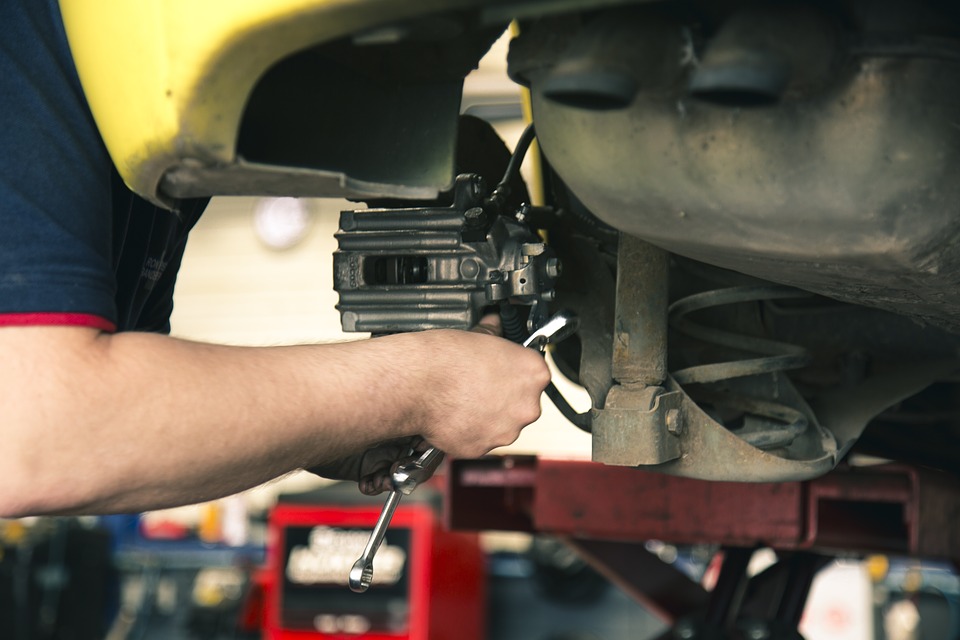Our vehicles are designed to be tough and hard-wearing, but regular use – particularly on tough terrain – can lead to gradual wear and tear that may worsen and cause major problems over time.
We’re constantly told that we need to keep our vehicles in good working order – and, of course, ensuring that we stay on top of their condition and level of functionality means fewer nasty surprises when we take them for their annual MOT. But exactly what routine vehicle maintenance should be undertaken, and how often? In this quick guide, the experts at Dronsfields explore the ideal basic vehicle maintenance schedule and explain what regular maintenance should be done on a car or van.
Why Should You Keep Your Car in Good Condition?
A well-maintained vehicle runs better and lasts longer. If you keep your car in good condition, it’s very possible that you’ll save on other expenses such as fuel as well as major maintenance costs further down the line. Basic vehicle maintenance includes keeping an eye on the condition of individual elements such as your exhaust, which will help you to ensure your car produces as few pollutants as possible, and your engine’s performance – an aspect that may lead to your car being completely written off if problems are not caught early. Even a failure to perform simple fluid and oil checks can lead to irreversible engine failure.
One surprisingly common problem that is often left unchecked is braking issues. Even a strange squeak or judder can be a sign of significant maintenance problems to come, which in these cases may lead to very dangerous situations.
The cylinder, cylinder head, spark plugs, camshaft and transmission assembly can each cost in the thousands to replace, so investing in small repairs here and there can save you a fortune in the long run.
Failing to perform routine vehicle maintenance on your lights is dangerous too, and can also lead to you being handed a fixed penalty notice by the police.
So what regular maintenance should be done on a car?
Required vehicle maintenance to keep your car in good condition
Fluid and oil checks and changes: these are some of the simplest examples of routine vehicle maintenance, and are all to often ignored – and yet failing to keep on top of these aspects can significantly damage or destroy your engine.
Engine air filter checks: Getting the filter cleared will mean that your engine performs better and lasts longer. It can also improve your vehicle’s fuel consumption by up to 10%!
Tyre pressure: This is another element that can slightly improve your fuel consumption if you have it checked regularly. It can also reduce the level of wear and tear on your tyres, making punctures less likely.
Tyre treads: Worn down treads will reduce the traction of your wheels and make skidding and sliding far more likely. Get this checked regularly in order to keep driving safely.
Brake pads: Worn brake pads can seriously affect your stopping distance, which could literally spell the difference between life and death. Keeping them maintained is extremely important.
Legally required maintenance
The question “what regular maintenance should be done on a car that is required by law?” is one that is surprisingly common. The answer is that getting your car serviced is not actually a legal requirement at all. However, there are certain elements of your vehicle’s functionality that need to be kept at a certain level for it to be deemed roadworthy. These are:
Lights: Headlights, fog lights, reversing lights and indicators must always function properly. It is extremely dangerous to fail to maintain them, and you could receive a fine from the police if you are caught driving with a malfunctioning light.
Brakes: It is a legal requirement that your brakes perform “as intended”. It’s illegal to drive without functioning brakes.
Exhaust: The police have the right to stop any vehicle that produces what they believe to be a hazardous amount of smoke from its exhaust.
Visibility: You may be fined if you are caught driving with significant chips, cracks or other damage impeding your view through your windscreen.
Tyres: It is legally required that your tyre tread depth remains at 1.6mm all the way around each wheel.
How often you should undertake routine vehicle maintenance?
Ideally, you should take your car in for a service every year or – if your vehicle is subject to heavy use, every 12,000 miles if you reach that stage before the year is out.
However, if you become aware of a maintenance issue between services, you should take your vehicle to a garage at your earliest convenience to prevent it becoming worse.
In conclusion, there are many reasons why you should keep your vehicle maintained. Doing so may prevent an existing problem from getting worse, thereby saving you money and keeping you safe while driving. It can also improve your vehicle’s performance practically, financially and environmentally.
From the simplest of checks – such as your oil and fluids, lights, air filters and brakes, to more in-depth maintenance – such as your cylinder and spark plugs, the more regularly your car is serviced, the longer it will last and perform to the highest standard possible.



